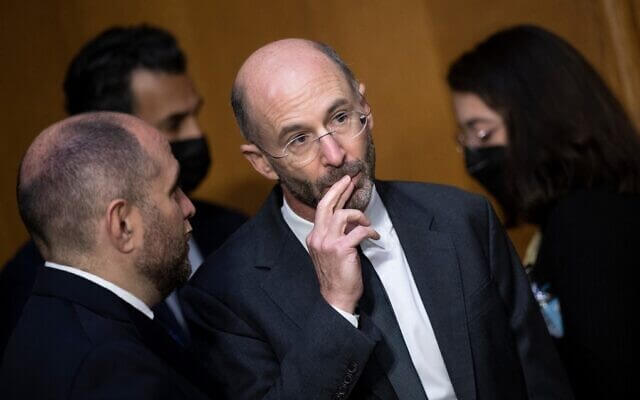In a Monday interview with BBC's Hard Talk, United States Iran Envoy Robert Malley said that despite problems with the Islamic Republic of Iran continuing to get worse for the past two years, that the administration is "not in the business of regime change,” and that “diplomacy is the still the best solution.” The latest statements from the Biden administration's top diplomat on Iran matters come as the regime continues to arrest, torture, and executions of protesters.
Asked by the BBC's Hard Talk if he would acknowledge the two-year diplomatic effort between Washington and Tehran has failed, Malley said, "Diplomacy never ends as we do other things." Malley noted that the Biden administration added sanctions to contain Iran in the Middle East and "mobilized the international community."
Malley explained that relations with Tehran have worsened since the administration came to office and started indirect talks with Iranian officials in April 2021. At the time, negotiations ended in a deadlock in the fall of last year, as American officials said Iran presented "extraneous" demands.
Asked to admit that the 2015 nuclear agreement with Iran is completely dead, Malley avoided a direct answer, saying that the Islamic government "turned down multiple opportunities to end this crisis so you could reach your conclusion."
Malley restated that the U.S. is willing to continue talks with Iran over its nuclear program to "reach a diplomatic outcome."
Following the brutal repression by the Islamic Republic against peaceful Iranian protesters, Iranian Americans, representatives in Congress, and human rights activists have demanded an official end to talks between Washington and Tehran to revive the 2015 nuclear agreement. These same individuals have also called for Malley's resignation from the Biden administration, given his lax approach with Iran’s brutal regime.
Malley reiterated that diplomacy is still priority for the President and that a military option against the ayatollahs and their nuclear program is only a "last resort." Malley added that the military option is a "very difficult option" and something President Biden would not "engage in cavalierly."
On the subject of how long the President is willing to diplomatically engage with Iran when a point comes that it seems useless, Malley confirmed that the administration has been sending "messages to Iran, but let's not overstate," and label its negotiations. Malley insisted that the U.S. must convey messages to Tehran, including heavy consequences if the regime supplies ballistic missiles to Moscow in its invasion of Ukraine.
Malley did not deny a previous report by Iran International that he held several meetings with Iran's ambassador at the United Nations. Asked about U.S.-Israeli military cooperation and joint military exercises aimed at sending a message to Iran, Malley said that these efforts show that America "has Israel’s back, and we will work with Israel" on protecting shared interests in the Middle East.
Malley also explained that the drills are meant to demonstrate that regardless of what is happening in Europe between Russia and Ukraine, the U.S. could "do other things" and "mobilize to defend our interests."
Pressed on whether the administration is separating the nuclear issue from the gross violations of human rights in Iran, Malley stated that "there is a degree to which we have to, in the sense that we can do two things," support the protesters and defend American national interests in not allowing Tehran to have atomic weapons.
On the subject of ongoing protests in Iran and the administration's response, Malley defended the efforts, citing statements by the President and his top officials and mobilizing international support to expel the Islamic Republic from the United Nations Commission on the Status of Women in December.
Malley praised the alignment with the European Union regarding Iran and said that the regime had a choice of returning to the obligations under the 2015 nuclear agreement and ceasing supporting Russia in its invasion of Ukraine.
Since protests began again in Iran in September, following the death of 22-year-old Mahsa Amini at the hands of the Islamic Republic, the U.S., Germany, France, and other Western states have enacted a series of sanctions against the Islamic Republic, including the Islamic Revolutionary Guards Corps (IRGC), Basiji paramilitary forces, and individuals affiliated with the regime. Despite facing international sanctions, the regime continues to torture and execute protesters publicly and privately.
Related Story: Envoy to Iran: U.S. Does Not Seek Regime Change in Iran Despite Protests









